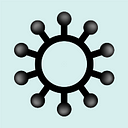Member-only story
The Rise of Misinformation and Pseudoscience
Earlier in August, the Coronavirus Blog covered troubling research on the Covid-19 misinformation epidemic, showing that over 2,000 false claims about the disease were in circulation worldwide. Now, as the New York Times reports, the effects of misinformation are being observed in doctor’s offices. People are getting sick and seeking medical help because they are acting on misinformed beliefs, like the false ideas that drinking bleach or highly concentrated alcohol could cure the coronavirus. “This is a statistically significant pattern that we can observe in a large survey,” said one researcher.
A similar problem with false information is brewing in India, which has one of the worst Covid-19 outbreaks in the world. As writer Vidya Krishnan writes in The Atlantic, “a troubling official tolerance of pseudoscience” is one reason why the country’s caseload is so high. Traditional medicine, which holds an important role in the country’s culture but is not proven to treat Covid-19, is supported within the government’s health department. This science denialism, Krishnan writes, “is having a profound effect.”

